Introduction
The holiday season is a time of joy and togetherness, but for healthcare providers and their Revenue Cycle Management (RCM) teams, it often comes with a surge in claims. Patients rush to use up their insurance benefits before the year ends, and providers face increased demand for care. This surge can overwhelm billing teams, leading to errors, delays, and revenue leaks.
In this blog, we will explore the challenges of managing claims during the holiday season and provide actionable strategies to help providers handle the increased volume efficiently.
Challenges of Increased Claims During the Holiday Season
The holiday season presents unique challenges for healthcare providers:
1. Year-End Insurance Rush
Patients often schedule procedures, tests, or doctor visits before their deductibles reset in the new year. This results in a sharp increase in patient volume and claims submissions.
2. Reduced Staff Availability
The holiday season means vacations and time off for staff, leading to fewer resources available to handle the increased workload.
3. Insurance Verification Bottlenecks
Verifying patient eligibility and benefits can become more complicated as insurance companies adjust coverage or close for the holidays.
4. Delayed Payments and Denials
Errors in coding, incomplete documentation, and missing patient information can result in claim denials or delayed payments, further straining resources during this busy time.
Strategies to Manage Holiday Claims Effectively
Handling the surge in claims during the holiday season requires preparation, streamlined processes, and proactive management. Here are some best practices:
1. Prepare Your RCM Team in Advance
- Staff Scheduling: Anticipate the increase in claims and ensure adequate staffing during the holiday season. Consider hiring temporary staff or redistributing workload to cover gaps caused by employee vacations.
- Training: Provide training sessions on common billing and coding errors to minimize mistakes during this busy period.
2. Streamline Insurance Verification Processes
- Verify Eligibility Early: For scheduled procedures, confirm patient insurance coverage and benefits ahead of time to avoid delays during claim submission.
- Automated Tools: Use automated eligibility verification tools to reduce the time spent manually checking patient insurance details.
3. Ensure Accurate Coding and Documentation
- Review and Update Codes: Stay up-to-date with the latest CPT and ICD-10 codes to ensure claims are accurate and compliant with payer requirements.
- Emphasize Documentation: Ensure that providers document all services thoroughly and correctly to avoid rejections or denials.
4. Optimize Patient Communication
- Educate Patients: Inform patients about their financial responsibilities, such as co-pays and deductibles, during their appointments.
- Send Reminders: Use email or SMS reminders to prompt patients to bring insurance cards or necessary documentation for their visits.
5. Leverage Technology
- Use RCM Software: Implement robust RCM solutions to automate claims processing, track denials, and manage billing workflows efficiently.
- Analytics and Reporting: Utilize data analytics to monitor trends, identify bottlenecks, and optimize claim workflows during the holiday season.
6. Monitor Denials and Resolve Quickly
- Track Trends: Analyze claim denials to identify patterns and address underlying issues promptly.
- Establish a Denial Management Team: Dedicate a team to work on claim rejections and resubmissions during peak periods.
7. Offer Flexible Payment Options for Patients
- Payment Plans: Provide patients with the option to pay in installments if they cannot cover their costs upfront.
- Online Payment Portals: Offer easy online payment solutions to simplify the process for patients and reduce collection delays.
8. Communicate with Payers
- Collaborate Early: Reach out to payers to confirm holiday schedules, billing deadlines, and processing times.
- Build Relationships: Establish strong payer relationships to expedite resolution of claim issues during this critical period.
Tips for a Smooth Post-Holiday Claims Process
Once the holiday season ends, the focus should shift to catching up on any outstanding claims and preparing for the new year.
- Audit Claims: Conduct a thorough audit of submitted claims to identify and correct any errors.
- Follow Up on Aged Claims: Prioritize follow-ups on claims that have been pending for an extended period.
- Plan for Deductible Resets: Prepare for the impact of patient deductibles resetting in January, which may result in slower patient payments initially.
Conclusion
The holiday season can be a challenging time for healthcare providers and their RCM teams, but with proper preparation and strategic processes in place, the increased claim volume can be managed efficiently. From verifying insurance eligibility early to leveraging technology and monitoring denials, these strategies can help healthcare organizations maintain revenue integrity and ensure timely payments.
The key is to view the holiday season not as a burden but as an opportunity to strengthen systems, improve team coordination, and set a strong foundation for the new year. By staying organized and responsive, providers can ensure financial stability while continuing to deliver quality care to their patients.

We’ll be an extended part of your team
The holiday season is a time of joy and togetherness, but for healthcare providers and their Revenue Cycle Management (RCM) teams, it often comes with a surge in claims. Patients rush to use up their insurance benefits before the year ends, and providers face increased demand for care. This surge can overwhelm billing teams, leading to errors, delays, and revenue leaks.
